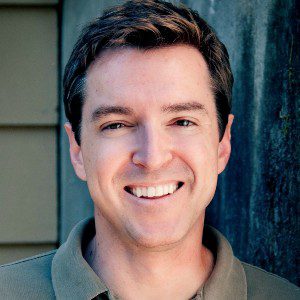“There is an enormous number of people, and I am one of them, whose native religion, for better or worse, is Christianity. We were born to it; we began to learn about it before we became conscious; it is, whatever we think of it, an intimate belonging of our being; it informs our consciousness, our language, and our dreams. We can turn away from it or against it, but that will only bind us tightly to a reduced version of it. A better possibility is that this, our native religion, should survive and renew itself, so that it may become as largely and truly instructive as we need it to be.” – Wendell Berry
When Berry shared this truth in 1994, I was a struggling sophomore at Westmont College, writing screeds for the student newspaper about the required chapel policy, and how God, who invented freedom, loved us too much to force us to worship him. It was the unvarnished truth, but it also didn’t make me many friends. And it’d take me an embarrassing number of years to learn to be more sensitive when speaking for God. The tendency held on, like a stain that wouldn’t wash off.
Around 2016, I fell back into that old rut for a while, and anyone who read my frequent posts on Facebook would tell you, there was a tone. Then in 2020, I read Dr. Kristin Du Mez’s book, “Jesus and John Wayne,” which neatly summarized the history of how evangelicalism came to be politicized by macho masculinity. And once again, the simple truth that patriarchal blowhards had commandeered the vehicle of my subculture needed sharing. Having the cold, hard facts felt rapturous, divine, heavenly, and all the other ways one might express their unacknowledged theological bias.
I wanted to be a voice in the wilderness and find others who felt like me.
Yet my bluster in that social media post once again revealed that frustrating spot. I wanted to be a voice in the wilderness and find others who felt like me. And I did. But my enemies of the true Christian faith (the nationalists, gun-lovers, deporters, pro-death-penalty-and-authoritarianism folks that squashed the fruit of the spirit and made it into devil juice) could clearly see I wasn’t exactly holding to my own principles of peacemaking and love. I was forced to acknowledge that any otherwise good Christian can be blinded. And just like they needed to try on some different shoes (gay, black, brown, “woke,” or even just “empathetic”), I needed to try on theirs.
But EWW! And many were even proud of their intolerance! They looked at the big, deep problems and blamed people for not having their privilege. How could anyone judge someone for being different? I felt pretty superior for a good three days until my enneagram-9 wife gently pointed out that maybe wasn’t I possibly doing the same thing? Good, kind, lovely people can do some terrible things when they feel threatened and afraid. And maybe especially when they don’t acknowledge their own fear.
Now I’m for tolerance, but I can’t tolerate the “values” and “worldview” of conservative Christianity. Honestly, allowing for them feels extremely threatening. And I don’t see a lot of respect offered even in the moderate left for those whose beliefs we consider poisonous. Among the many influencing factors, divisive fear-mongering is perpetuated by politicized media. Endless efforts to discredit, defame, and destroy opponents happen on the daily, and they’re not just “wrong,” but evil and deplorable. Which side has the high ground? And how do you even discuss real issues when you can’t countenance someone’s right to believe as they choose? Are we looking to lay blame or show mercy here?
Maybe a better question to start with: If someone doesn’t realize what they’re doing, are they responsible? Is “ignorance no excuse,” or is that only under the law? What about love?
Fighting and arguing, even against evil, won’t bring back true Christian anything.
In college, no one told me I could be right and still wrong. I was upholding fundamental Christian principles of forgiveness, accommodation, and centering the marginal. But I wasn’t being forgiving, accommodating, or even very civil, to be honest. Fighting and arguing, even against evil, won’t bring back true Christian anything.
I’ve said things like “I’m a progressive because I’m not for regression.” But I’d honestly love to get back to the true Christianity that’s anti-violent. Or hearing and actually loving our enemies. Beneath all the anger, traditionalists and progressives have the same deep fears, and good people’s fear has always fueled the burnings, lynchings, and stonings in history. I think what Wendell meant is that we all struggle not to turn away from the fear that drives our anger. But only by facing it can we stop the warping of true faith, and return to open dialogue about our beliefs. And then maybe we’d finally appreciate what faith and freedom were meant for all along.
Wherever you are on the spectrum, left, right, or center, Christian means an open, loving embrace of everyone, regardless of their fear. We can face that fear if we’ll face our own first, and the cause of it, the fundamental uncertainty that we all have to find a way to deal with. And with the higher might of mercy, we can go to those places that truly terrify us and overcome hate with compassion.
Maybe that’s all we’re responsible for in the end.

Mick Silva is a freelance book editor in Grand Rapids, MI. He has two daughters and one wife. He has a cat named Samus. He likes classical music, vintage video games, and his favorite sport is curling.


